Metabolic syndrome refers to the simultaneous presence of several factors that pose a risk for the onset of cardiovascular disease


Metabolic syndrome refers to the simultaneous presence of several factors that pose a risk for the onset of cardiovascular disease

As we saw in the article “How About You, Can You Breathe Well?”, breathing is fundamental to life and regulates several physiological processes. Doing it efficiently, however, can change life and even lengthen it.
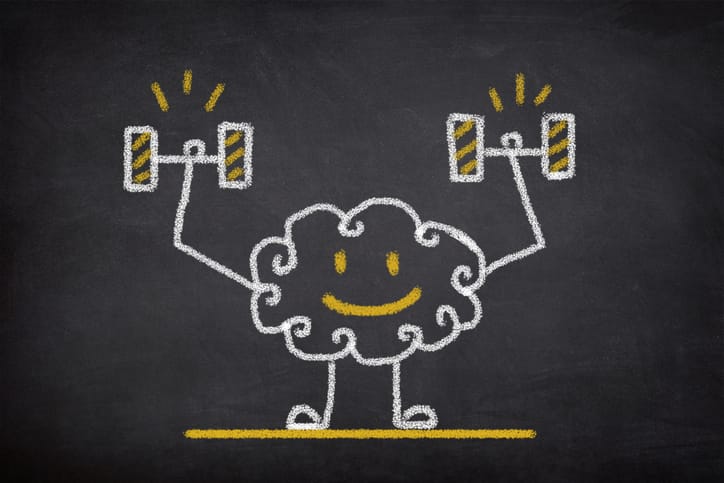
Brain Boost Program combines precision diagnostics and personalized medicine to improve cognitive function. Through a module-structured pathway, it acts on memory, attention, and executive skills, considering metabolic, neurological, and lifestyle factors. A comprehensive method to preserve and enhance cognitive performance over time

SoLongevity launches Brain Boost Program, a comprehensive diagnostic and intervention program dedicated to boosting cognitive reserve and preserving cognitive health. From check-ups to personalized cognitive training: to improve memory and increase concentration, fighting mental fatigue and counteracting brain aging

Breathing can be trained through exercises to enhance health and longevity. Discover SoLongevity’s Breath Training Program
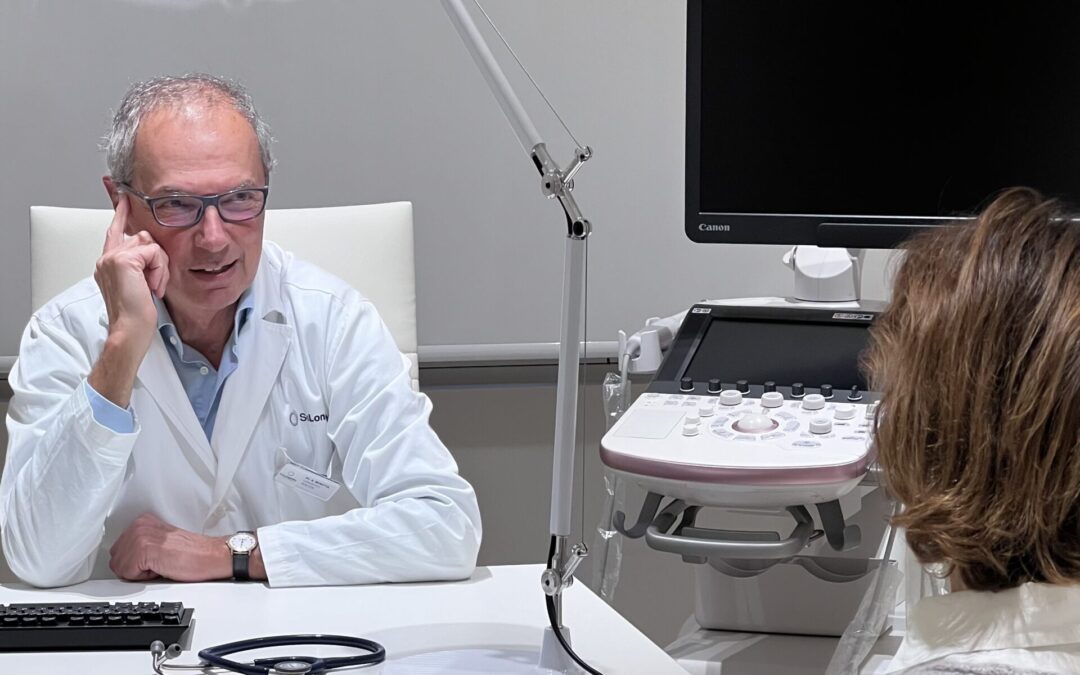
SoLongevity’s first clinic in Italy offers Precision Longevity™—a medical space designed to help you achieve healthy longevity goals and take a personalized approach to active prevention.

SoLongevity launches Sport Longevity Hub: the most up-to-date scientific knowledge and expertise of Solongevity staff to check one’s starting health status and set up the most suitable training path for each person
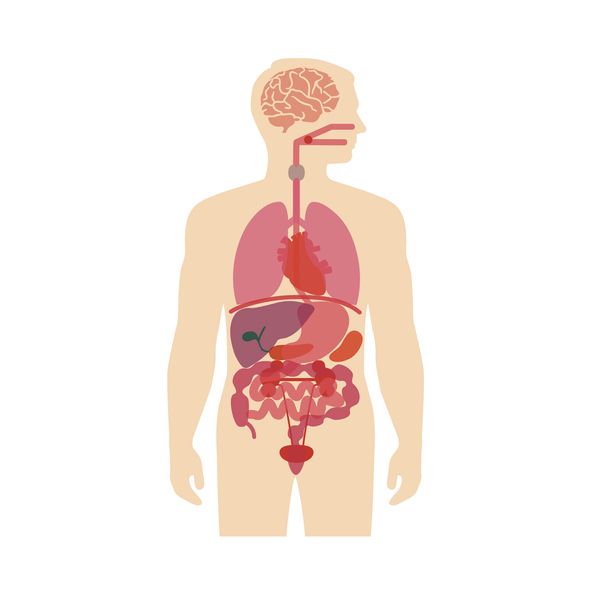
Researchers at Stanford University have developed a method to calculate the biological age of 11 body districts. This metabolomic clock could predict the development of dysfunction even before symptoms occur

According to a study published in Advanced Science, patients with mild to moderate forms of Covid-19 tend to recover faster when treated, in conjunction with antiviral therapy, with a combination of precursors of this molecule

An all-Italian research team has engineered a protein that promotes the exchange of information between neurons, making it activatable through the administration of rapamycin

Regular physical activity is essential for staying healthy, but, according to the results of a study published in Cell Metabolism, overdoing it may even become counterproductive

What is age-related frailty? And how does it show up in the two sexes? And is it possible to prevent it? Francesca Baglio, a neurologist at the IRCCS Fondazione Don Carlo Gnocchi ONLUS in Milan and a member of the SoLongevity scientific committee, tells us.
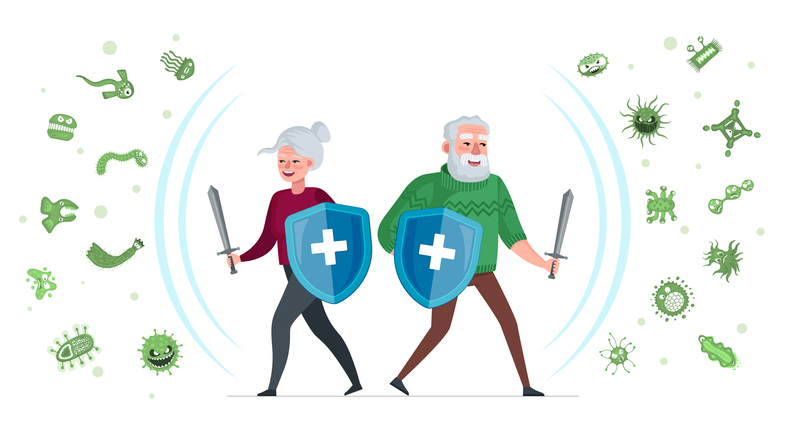
As we age, some cells of the immune system seem to lose their memory and revert to resembling those of infants. This makes them less effective in responding to previously encountered pathogens and could have implications in the development of new vaccines

Sounds composed of more powerful low frequencies seem to promote deep sleep and better cardiac function

Flavia Franconi has lived several lives. A graduate in Psychiatry, she taught Pharmacology at the University of Sassari. She then served as Health Councillor of Basilicata. But women’s health has always been at the center of her interests. Indeed, she is the “noble mother” of sex-gender medicine in Italy, and today she is also at the center of an international network as chair of the Women20 Health Commission. We asked her to tell us about the differences between the sexes when it comes to aging.

Inflammaging, or chronic low-grade inflammation, is defined as a state of low-grade inflammation that can promote the onset of chronic diseases related to aging

Changes to the sleep-wake cycle can alter hormonal control over appetite and satiety, contributing to weight gain and increasing the risk of metabolic syndrome and diabetes

Five minutes of immersion in water at 20°C can cause a marked improvement in mood, and underlying these effects appear to be changes in functional connections between different brain areas

The microbiota is the collection of a great many microorganisms that inhabit our bodies, with which we maintain a relationship of mutual exchange: we provide them with the nutrients they need, while they perform physiological, metabolic and immunological functions important to our physical and mental well-being

The word metabolism, derived from a Greek word meaning “mutation,” denotes the set of chemical and biochemical transformation processes that food undergoes from the moment we ingest it

Sirtuins are proteins that occur naturally in our body and regulate some important metabolic processes, Overall, their action aims to reduce cell replication, consequently slowing down the aging process

Aging is a physiological process whereby the various functions of a certain organism tend to progressively deteriorate over time. Although you cannot stop the hands of the clock, there are several steps you can take to ensure that you age as healthily as possible. Let’s see which ones

Dogs that eat only once a day seem to retain their cognitive abilities longer and generally have better health status
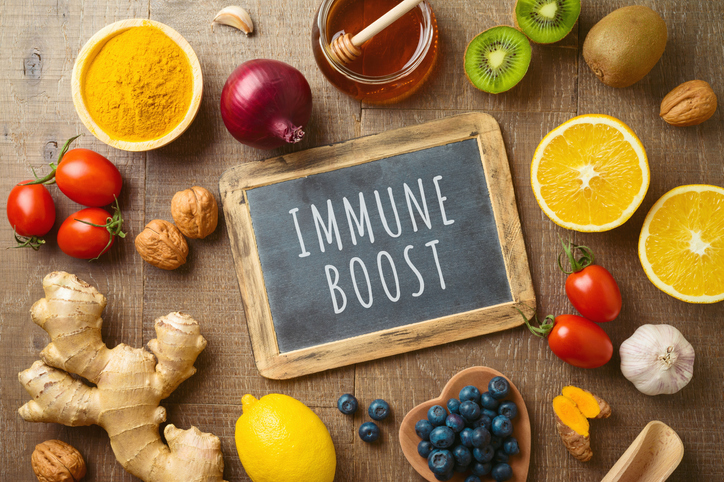
To function well, the immune system, and particularly its cellular components, need to maintain a proper energy balance

The immune system protects us from attack by pathogens through two types of responses: innate and acquired immunity. The first is very quick and powerful, but not specific. The second, in contrast, is slower and is specific. The latter is based on the activation of highly specialized cells, B lymphocytes and T lymphocytes

We call it “gender medicine,” but it would be more correct to call it “sex-gender medicine.” Its goal is to ensure increasingly adequate treatment for all and equity of access to care, through the recognition and enhancement of differences between male and female individuals

An increase in this amino acid in the blood, which may also be diet-dependent, increases the risk of several aging-related diseases

The reasons why women have a greater need for sleep than men lie in certain aspects of biology, but are also cultural and social

An advanced check-up of physical health status and cognitive performance, and risk factors for aging-related diseases. With an individualized program aimed at slowing biological age

Those taking higher doses of magnesium have, on average, a higher gray mass volume and fewer white matter lesions. However, further studies will be needed to confirm these results

Rapamycin, currently used as a post-transplant anti-rejection drug, appears to counteract the age-related reduction in histone expression. However, it can cause even serious side effects

A consensus document from the European Atherosclerosis Society gives physicians new guidance for testing and treating high blood Lp(a) concentrations

According to a study published in Scientific Reports, exercises involving breath control appear to have a positive impact on stress symptoms

Several studies support the hypothesis that the efficacy of immunotherapy can be prolonged over time by acting on mechanisms that regulate intracellular oxidative stress
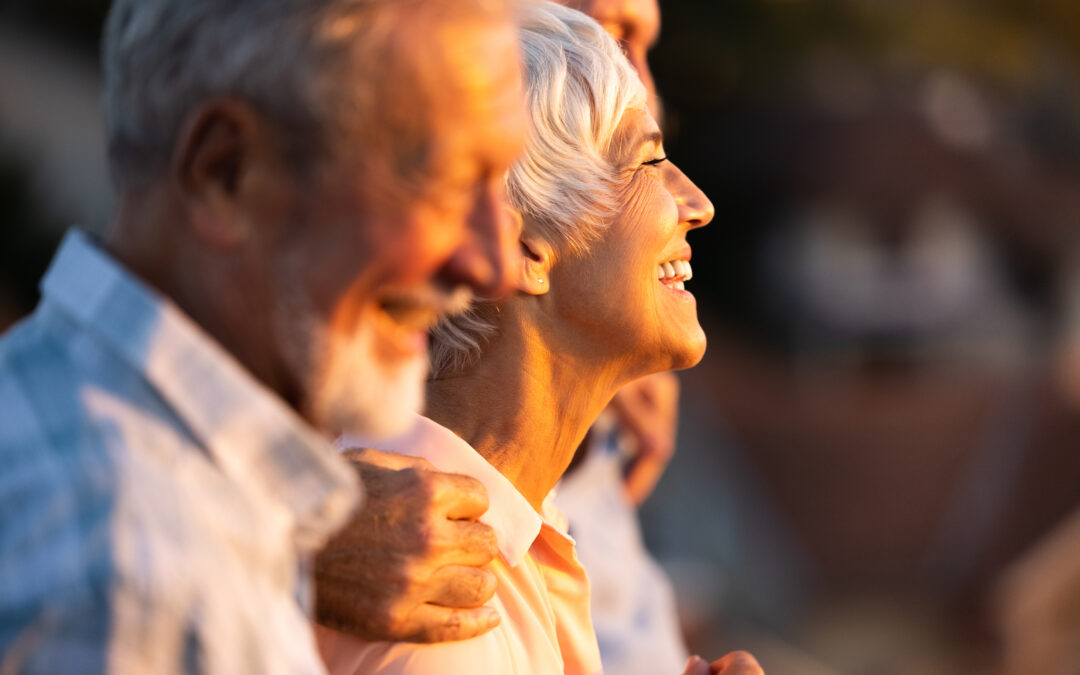
In 2013, nine causes of aging had been explained. About ten years later, the number rises to 12

Fofo stands for “fear of finding out,” or fear of discovering that you suffer from a certain health problem. And the
consequence is a possible delay in treatment

The immune system protects us from potential threats, but if it is not functioning at its best it can give rise to exaggerated processes of inflammation and oxidation, which damage the body and promote aging and related diseases. “Feeding” it correctly is imperative

Vascular problems and oxidative stress underlie the decline in cognitive performance associated with aging, and may contribute to the development of dementia and Alzheimer’s disease. But action can be taken to reduce risks

A genetic variant very common in centenarians appears to have the ability to restore the function of certain heart cells, improving overall organ function and turning back the hands of the biological clock

“Longevity proteins” are now the focus of numerous studies that are investigating their possible preventive role against neurodegenerative diseases

In the last twenty years medicine has undergone a great revolution. The acceleration in genomics and other omics sciences has led to a profound change in the approach to the prevention, diagnosis, and treatment of diseases

One in 4 Italians – and one in 2 among those over 50 – suffers from metabolic syndrome. Here’s how to diagnose it and how to intervene to reduce the risk of metabolic and vascular diseases

The idea that speeding up metabolism is helpful for losing weight fast is mostly a false myth. This is what the science shows us.
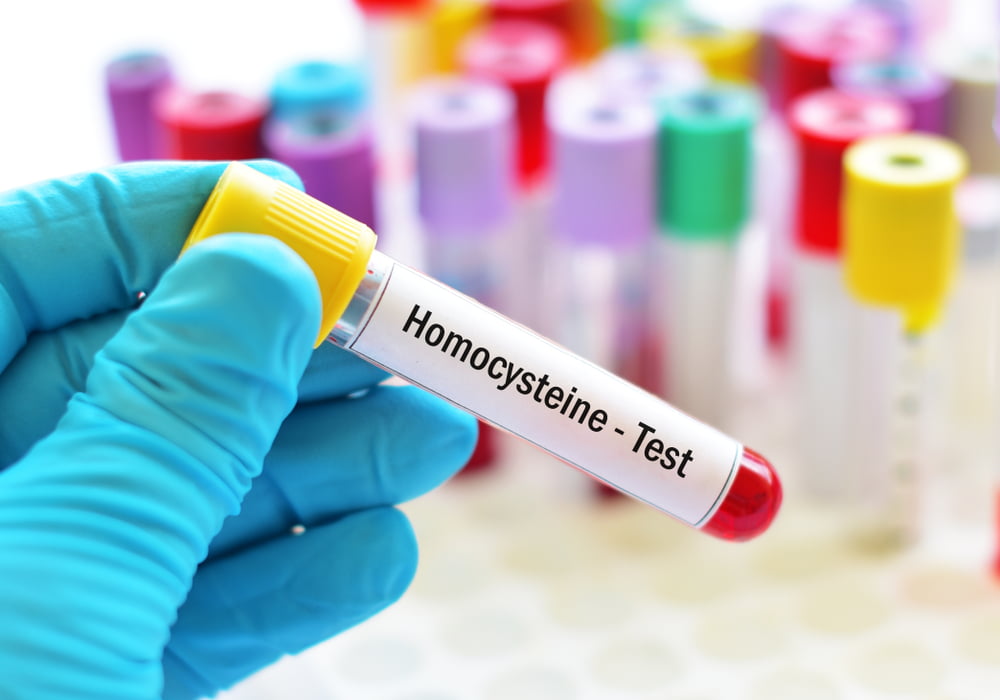
Excess homocysteine poses a health risk to the cardio- and cerebrovascular system because it stimulates the development of atherosclerosis, increasing the likelihood of stroke and heart attack. If action is taken early, by changing dietary habits and through supplements, levels can be normalized. With a double advantage

There are several methods for measuring oxidative stress. Knowing one’s “level” of oxidative stress can be useful in a preventive and healthy aging perspective

Telomere length is considered one of the hallmarks of aging, but new research is revealing that their “measurement” seems to be indicative more of health status than biological age. As Valentina Bollati, associate professor in the Department of Clinical and Community Sciences and the Epiget Lab at Milan State University, explains.

The biological age of an organism is a significant indicator of health status and susceptibility to illness. Individual organs and tissues may undergo different aging processes, but the real challenge is to define a biological clock that applies to the whole organism, and that translates into parameters that are easy to monitor and act upon.

Measuring chronic latent inflammation is not as simple as measuring acute inflammation associated with infection or disease. There are different types of tests and markers, with different sensitivities. Here is a brief guide to get your bearings
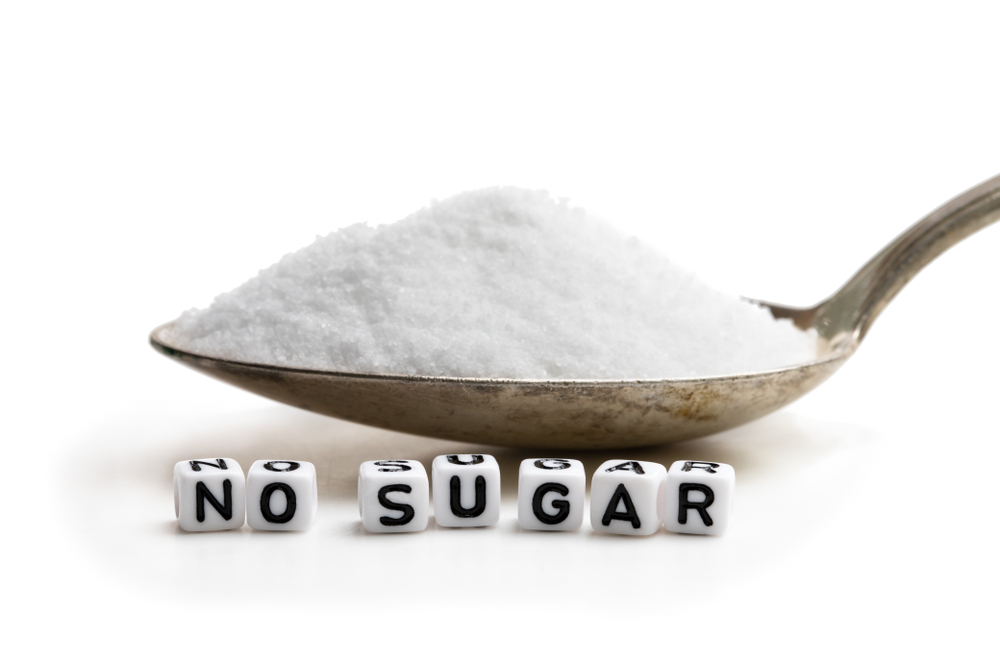
A study published in Cell suggests this. Researchers investigated the effects on the intestinal flora from sweeteners such as aspartame, saccharin, stevia or sucralose, and also analyzed their effects on blood glucose

Fermented foods are showing beneficial health properties. Here are a few, for every palate

Focusing only on treating chronic diseases when they occur is not a sustainable strategy. A change of perspective is needed: to invest, first, in healthy longevity. This is the philosophy of SoLongevity and other major players in Geroscience, who sign a manifesto of intent in Lancet Healthy Longevity

After menopause, women’s cardiovascular risk is quite comparable to that of men, yet it is underestimated even by health professionals

Many metabolic processes in the body produce free radicals that, under balanced conditions, are neutralized by antioxidants. Some external agents, however, as well as certain habits and diseases, increase the production of free radicals excessively, and generate a state of oxidative stress that is dangerous to health

SoLongevity Nutraceuticals is launching a new product, developed to regularize homocysteine and glutathione levels, promote blood vessel health, support cell energy metabolism, and contribute to cardio and neurovascular wellness

Roberto Pusinelli (40) and Violante Lama (42), competing with the Italian national team at the European Rowing Championships, participate in SoLongevity research to understand how to improve mitochondria efficiency and provide answers to combat Long Covid

Certain epigenetic mechanisms underlie the aging processes in many mammalian species, including humans. This is the basis of the watch of Steve Horvath, a pioneer in biological age research

Certain foods are associated with lower levels of inflammation, as measured by specific markers such as C Reactive Protein. Here are what these “shield” foods are for our health.

An American study measured the effects of urolithin A supplementation on muscle endurance and mitochondrial health. The results suggest that the substance aids a process called mitophagy, by which cells replace damaged mitochondria

A new mathematical model recalculates the theoretical maximum human lifespan, bringing it up to 150 years
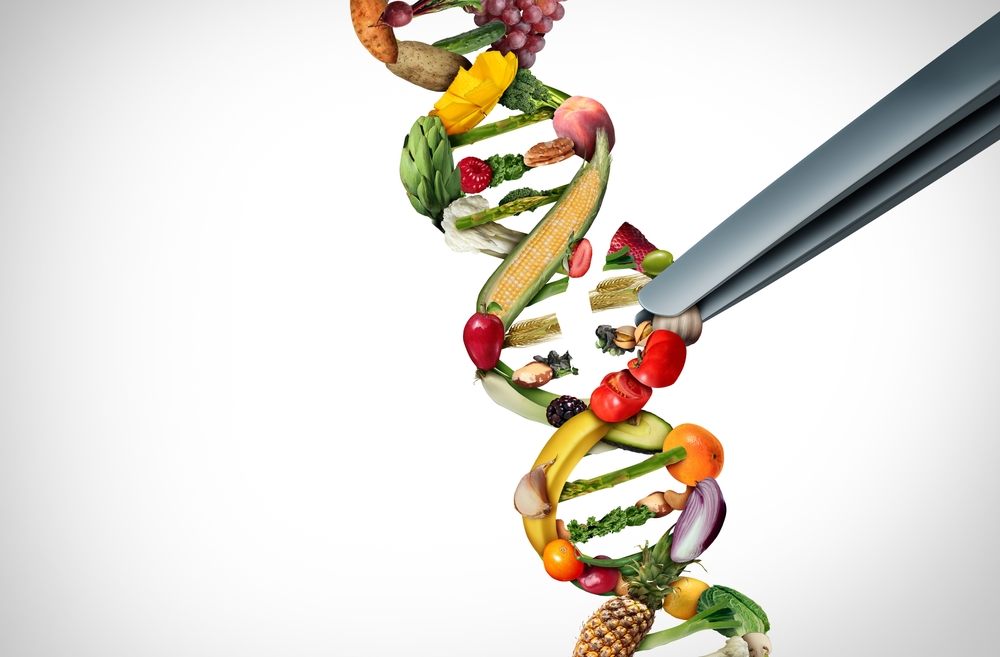
There are many studies that are trying to define the optimal eating style to increase the number of years lived healthy. Much of the research focuses on intermittent fasting to determine what the best time window is. Exploring this world is a review by Italian scientist Valter Longo in Cell.

Resveratrol, polydatin, glutathione, and NAD+ are four of the so-called “longevity molecules” on which research has long focused. In a series of four articles we explain what they are and how they work.

SoLongevity research has developed a patented, clinically tested formula that can rebalance the Redox status and reduce inflammation, with the aim of preventing age-related decline in cognitive ability.

It is one of the most powerful natural antioxidants in our bodies. It plays a central role in tissue production and repair and defends us against numerous diseases. And it plays an important role in physiological processes related to aging.

Antioxidant and anti-inflammatory, resveratrol also appears to have antiviral action, limiting Sars-Cov-2 replication in nasal epithelium cells.

A diet rich in these foods increases the diversity of microorganisms in the gut microbiome and reduces inflammation.

NAD+ is a molecule involved in cellular metabolism and aging. As the age increases, its level actually decreases. But with appropriate supplementation, it can be restored.
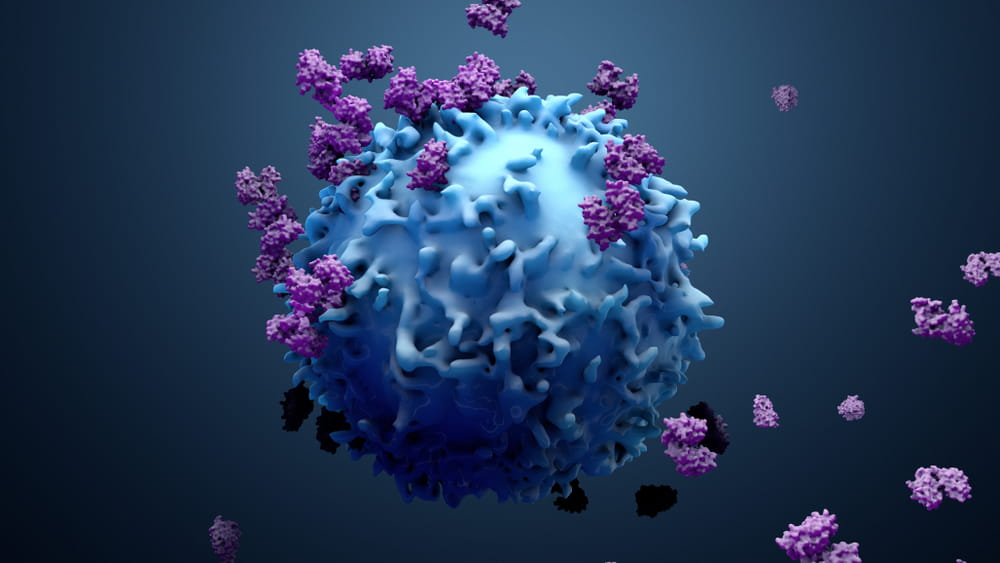
Once seen only as helpful and protective, we now know that inflammation can contribute to the development of numerous diseases

The new coronavirus has been shown to have neurological and neuropsychiatric effects even in the long term. These mechanisms and the hypothesis that inflammation predisposes to the development of neurodegenerative diseases, such as Alzheimer’s and Parkinson’s, are being investigated.

A polyphenol with antioxidant and anti-inflammatory properties, polydatin is a natural bioavailable molecule that also appears to reduce the infectivity of the coronavirus

Measuring one’s state of health against an ideal aging process allows us to understand how well we are able to preserve our physical and mental performance and how exposed we are to future risks of chronic diseases

What are amino acid supplements? What benefits do they have and how do they work? Who are they indicated for? Alessandro Orlandini, M.D., a pharmaceutical chemist and specialist in clinical biochemistry, now medical director of the Italian company Professional Dietetics, answers these questions.

Longevity genes can be activated with a specific mix of nutrients. This is what prompted SoLongevity research to develop a special formulation: a combination of amino acids, polydatin and NAC which, in a controlled clinical trial, proved effective in rebalancing oxidative stress and reducing inflammatory parameters.

A study published in Science identified four age-related phases of the metabolism: it is very fast in the first year of life, then slows down little by little until the age of 20, remains stable between 20 and 60, and only slows down again in later life.

They can leverage public trust and have a large presence throughout the country for easy access and proximity. This is why pharmacies are entitled to become more and more a point of reference for health: the first destination for primary care promotion

When it comes to cardiovascular disease, the age of our immune system matters more than age. Today, the iAge “inflammatory clock” allows us to estimate it. How does it work?

The third chapter of our guide is about the criteria for evaluating a food supplement. What “good” characteristics should it have? From certifications to bioavailability to the production chain.

In the second article of our guide to food supplementation, we offer a list of questions to figure out what you really need

The first of a series of articles to guide you into the world of dietary supplements. It starts from basic: what we should be aware of before approaching the food supplements’ shelf in pharmacies and herbalists, or in the supermarket

Obesity is one of the main risk factors for the development of severe forms of Covid-19: according to the experts, chronic inflammation and an altered immune system are involved. Just as it does when you get older.

The one called Long Covid seems to be a real syndrome. Are there tests to measure its effects on the body? And what can we do to improve the symptoms? Today we publish the first of a series dedicated to the Long Covid in which we will deepen the diagnostic and therapeutic aspects, and the perspectives of research.

Called TET 1 seems to be essential to ensure the formation of new connections between neurons. A study from the Graduate Center of New York shows that as we age, its production declines. The next step is to try to stop this phenomenon.

SoLongevity is the only Italian company to join the National Innovation Center for Aging (N.I.C.A.) in the UK, one of the most advanced international realities in the world in basic and translational research on aging. Mission: to transform longevity medicine and technology into services for the general public.
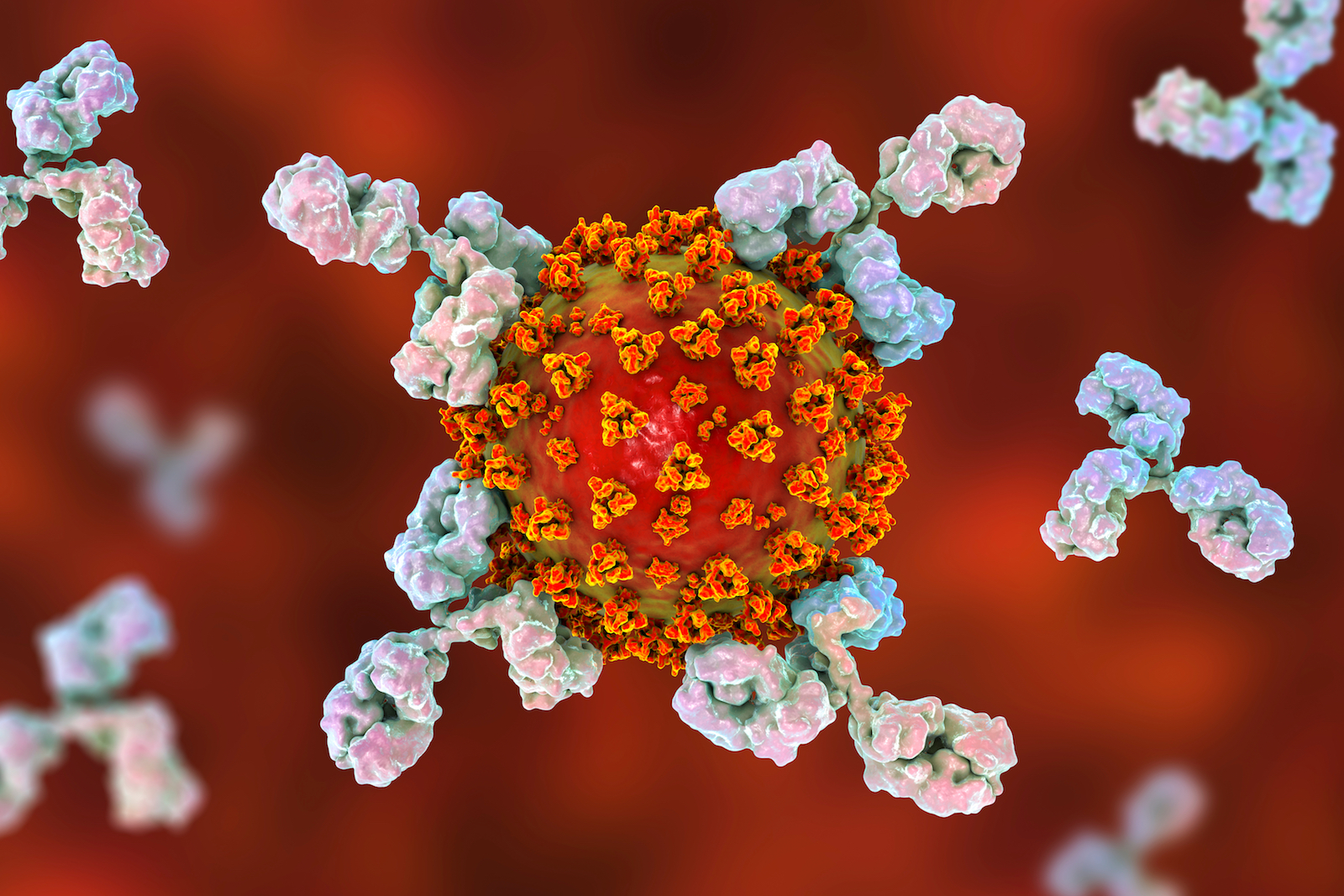
At least three mechanisms are known why acute inflammation can become chronic, accelerating aging. And there are foods that can lower inflammation, but be careful of so-called “anti-inflammatory diets” that are not based on science

Sirtuins are special proteins triggered to preserve the cell life under risky environmental conditions by pausing the cell’s most wasteful activities. This mechanism can be used to counteract aging. Can the choice of certain foods help?

Memory and concentration issues, fogginess, anxiety, depression, and loss of taste and smell: these are all neurocognitive symptoms of what is known as Long Covid Syndrome.

According to some clinical observations, the immune system of young Covid-19 survivors appears to age prematurely, contributing to the onset of Long Covid. But this ageing process could also be reversed

The biological clock is one of the most self perceived physiological mechanisms, sensitive to our lifestyle and ageing processes. An ancestral system that governs the rhythm of our body and that we must know and respect.

It only takes 15 minutes of intense physical activity to improve procedural memory. The study, published in Scientific Reports, offers new ideas for the development of strategies for the prevention of neurodegenerative diseases.

Pro-longevity nutrion demands a smart management of Glucose and Proteins metabolic level. Let’s understand which nutritional strategies are more effective and useful for an healthy ageing.

Understanding our metabolism to consciously nourish ourselves in order to build a long and healthy life.

The age, which depends on the date of birth, does not necessarily coincide with the real ageing of our organism, i.e. the biological age. Which can be measured with the Biological Age Score, slow it down and sometimes take it back, without resorting to drugs.

It is known as inflammaging: a state of low grade but chronic inflammation, which damages the body. Studies have shown that it plays an important role in the onset of diseases associated with ageing and in the fragility of older people.

Solongevity Research, published by the international scientific journal in Immunology, addresses the issue of interactions between SARS-CoV-2 and other seasonal coronaviruses, immunological interactions that may explain the severe clinical course of some patients and the seasonal pattern.

Using artificial intelligence and Eeg performed in sleep, a team of researchers has developed a new test to estimate the biological age of the brain and predict the risk of dementia.

A research by the University of Illinois suggests that the decline in cognitive performance in postmenopausal women depends on decreased activity of the mitochondria, the “powerhouses” of the cell.

from 30 to 60 year old, about 7.5 kg of muscle mass is lost in favour of fat mass. This is a physiological phenomenon linked to ageing, which can become pathological. In this case we speak of sarcopenia. Muscle decline, however, can be prevented.
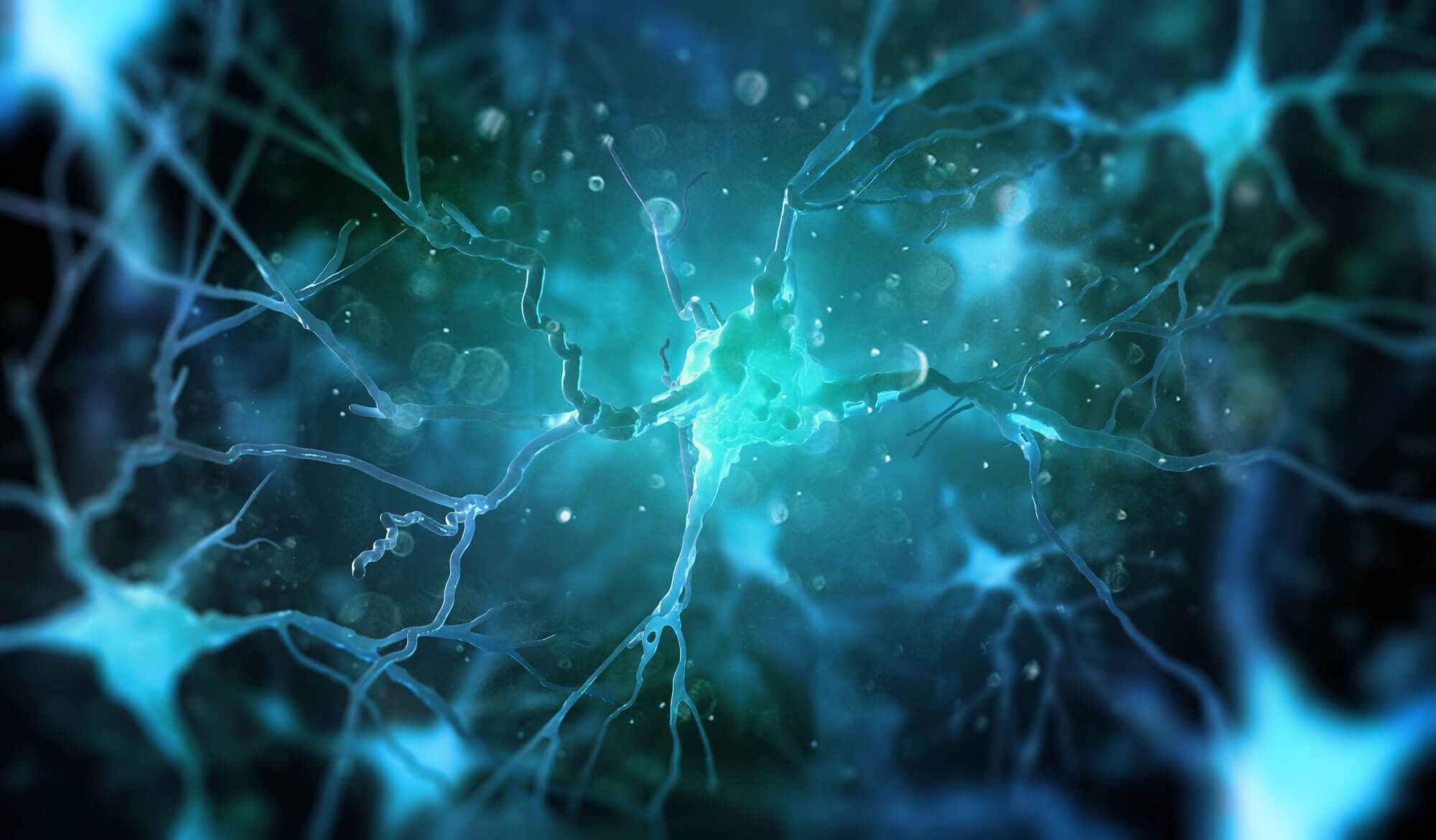
Even the brain gets old. The loss of cognitive ability is linked to neurobiological changes, such as the thinning of the cerebral cortex. Today it is possible to measure this process and intervene both to slow it down and to recover what has been lost.

Along our lives, the genetic code contained in our cells accumulates small damages and the telomeres, the ends of the chromosomes, shorten, making it even less stable. Two phenomena linked to the ageing process and diseases of old age

As the immune system ages, it undergoes alterations and becomes less efficient. This is how processes such as immunosenescence and inflammaging affect it, exposing us to an increased risk of infection by pathogens such as the new coronavirus SARS-CoV-2.

The elderly are more susceptible to infections such as coronavirus SARS-CoV-2 due to phenomena such as immunosenescence and inflammation. At their origin, however, there are epigenetic changes that we can influence through our lifestyle.

115 years is the estimated intrinsic capacity of the human being to live. But how long we live, and how we live, does not depend solely on our genes. Epigenetic studies have shown that there are mechanisms that can repair DNA damage and increase longevity.
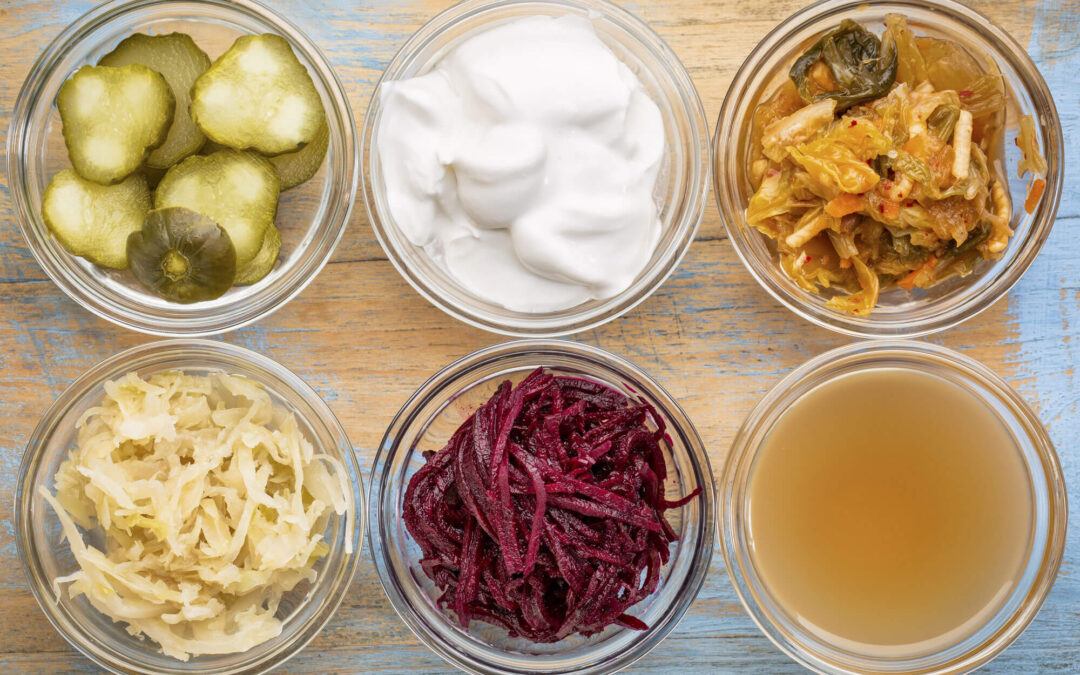
the whole set of organisms living in our intestines is called microbiota. Today we know that they are key for health and that they also have a role in the ageing process.

Yes, while ageing the reactions that occur in the body become less efficient. But through small interventions on nutrition and physical activity it is possible to stimulate it, stopping the aging process and reducing the risk of disease.

The genes’ role in the way we age has shrunk in recent years. Much more, in fact, depends on epigenetics, the set of biochemical reactions acting on the genome. Here is what epigenetic ageing is and what we can do to slow it down

It is known as inflammaging: a state of low grade but chronic inflammation, which damages the body. Studies have shown that it plays an important role in the onset of diseases associated with ageing and in the fragility of older people.

They are called SIRT and qualified as ” longevity genes”. They are responsible for the production of sirtuins, fundamental proteins that allow cells – and us – to live longer. Scientists have begun to understand how to make them work at their best.

An international team of researchers has identified 9 “hallmarks”: key mechanisms of the ageing process of all organisms and many diseases such as cancer, diabetes, cardiovascular and neurodegenerative diseases. The role of Epigenetics is central

The age, which depends on the date of birth, does not necessarily coincide with the real ageing of our organism, i.e. the biological age. Which can be measured with the Biological Age Score, slow it down and sometimes take it back, without resorting to drugs.